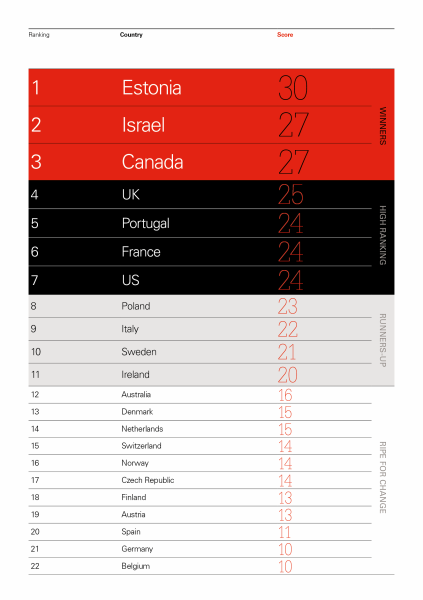A group of investors and entrepreneurs are increasingly worried that Europe’s startup momentum could be derailed by a lack of talent to fill jobs. In an effort to draw attention to the problem and create a greater sense of urgency, the coalition today published an open letter signed by 30 tech CEOs that calls on Europe’s political leaders to address the shortage.
“Europe could be the world’s most entrepreneurial continent, but the limited availability of talent to nurture and fuel its blossoming startup ecosystem is a serious bottleneck to growth,” the letter says. “That’s why we, the founders and executives of Europe’s leading tech businesses, now urge policymakers to put talent at the top of their agenda.”
The signatories include CEOs of Farfetch, Stripe, Delivery Hero, BlaBlaCar, and Criteo. The group projects that at the current rate of growth, European startups will need to hire at least 100,000 employees over the next year. And that doesn’t include the startups that haven’t been created yet.
Among the efforts the group would like to see are changes to regulations regarding stock options. Currently, the rules are set by each country, rather than at the European Union level. And that has led to wildly different regulations across member countries.
June 5th: The AI Audit in NYC
Join us next week in NYC to engage with top executive leaders, delving into strategies for auditing AI models to ensure fairness, optimal performance, and ethical compliance across diverse organizations. Secure your attendance for this exclusive invite-only event.
A study by Index Ventures that will be released at the upcoming Slush Conference in Helsinki ranked countries by how easily they allow the use of stock options:

In an interview, Index partner Martin Mignot said that in past years lobbying efforts by the tech sector have focused on the need to inject more capital into the European system. While the funding problem hasn’t been completely solved, trends have dramatically improved, as a growing number of European startups have demonstrated the ability to raise larger later-stage rounds, he said. Now the group has turned its attention to the talent issue.
“The talent part is where Europe is still lagging badly, badly behind,” Mignot said. “Even though there are a lot of great companies getting built, if we want to get to that next stage, the top startups need to attract the talent they need. Both in Europe, but abroad as well.”
Index’s study focuses particularly on the issue of stock options, Mignot said, because these have become the most commonly accepted form of compensation in places like Silicon Valley, and European startups need to be able to match those offers. The study notes, for instance, that European employees own around 10 percent of their companies, compared to the 20 percent in U.S. startups.
As part of the study, Index suggests that governments put in place clear regulatory schemes for options and offer better tax treatment and more favorable valuation rules.
“There are bits and pieces that are getting better,” Mignot said. “We can’t say there’s a tidal of wave of every country realizing this is a big issue. We believe that now is the time. A few years ago, the value hadn’t even been created. So the question of how you split the value wasn’t really on the agenda. But if you want this generation of startups to help nurture the next generation of startups, you have to make it easier for the companies to distribute their value to employees.”


